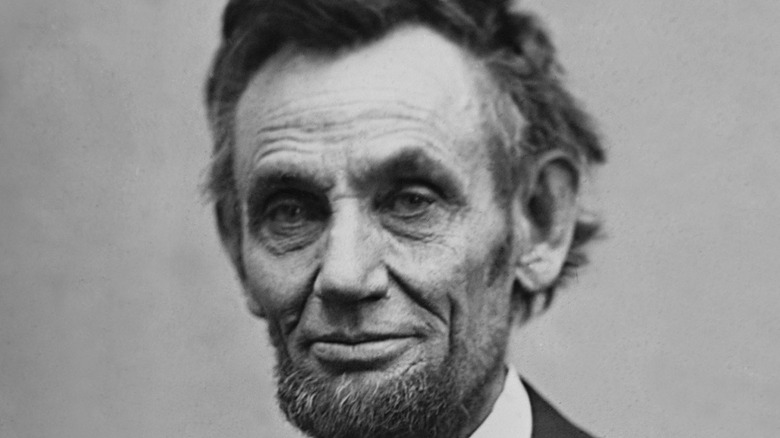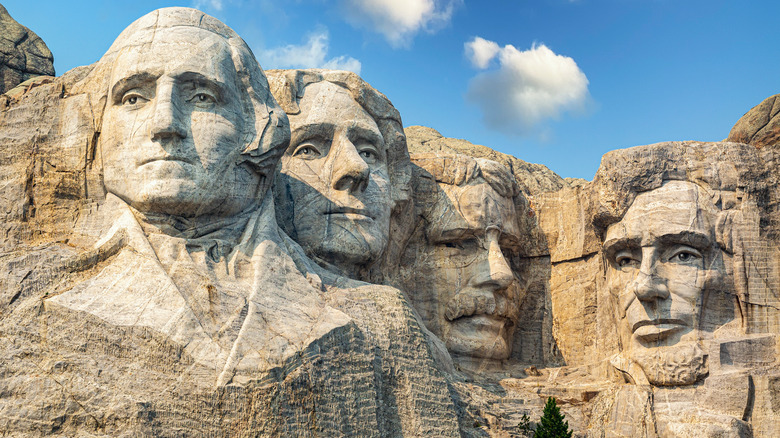Why Abraham Lincoln Couldn't Stand Thomas Jefferson
Over the centuries of American history, there have certainly been presidents who secretly or not-so-secretly disliked each other. They may not have liked their policies or even what they represented as a person. Several former presidents have gone on the record of their feelings toward Donald Trump, for example, according to NBC News. Many politicians are airing their own grievances at each other on social media as well as the news, especially on partisan networks. The days of circumspection seem to be long gone.
But what about during the times when social media was a distant creation? How about the time of President Abraham Lincoln? According to The New York Times and his former law partner, he thoroughly hated Thomas Jefferson. Lincoln despised him in terms of his morality and his political works. Yes, the man who always looked so stoic in his photos was riled by his predecessor.
One thing that irked Lincoln was that Jefferson was talking about equality for all while having an affair with a slave of his, Sally Hemings. In Lincoln's eyes, it was very two-faced of Jefferson and brought his moral character into question. After all, Lincoln was also the one who wound up freeing the slaves with the Emancipation Proclamation, so it stood to reason that he would disagree about his predecessor's actions with someone that he owned.
Lincoln thought little of Jefferson
As far as his policy beliefs, Thomas Jefferson was someone who favored landowners whereas Abraham Lincoln was more on the side of banks, per The New York Times. Lincoln also backed a transcontinental railroad and tariffs, which Jefferson would have loathed. The man who would be the third to hold the office of president hated commercialism and especially banks. So the two of them would have been at loggerheads with each other had Jefferson not died in 1826, according to History.
While Lincoln disdained Jefferson on many counts, he also was rational enough to recognize that the third president did have some redeeming qualities after all. Even though he knew Jefferson was a slave owner with questionable morals, he also saw someone who wanted a free society. Lincoln also heeded warnings about a president overreaching in terms of his power, especially when it came to the Civil War.
What it really all boiled down to was that Lincoln recognized that Jefferson, for all his faults, was also a human being who had some redeeming qualities. It would be interesting to see what he would make of the current political climate if he were alive now. Would he be as even-handed as he was or be as partisan as the others? We will never know.

